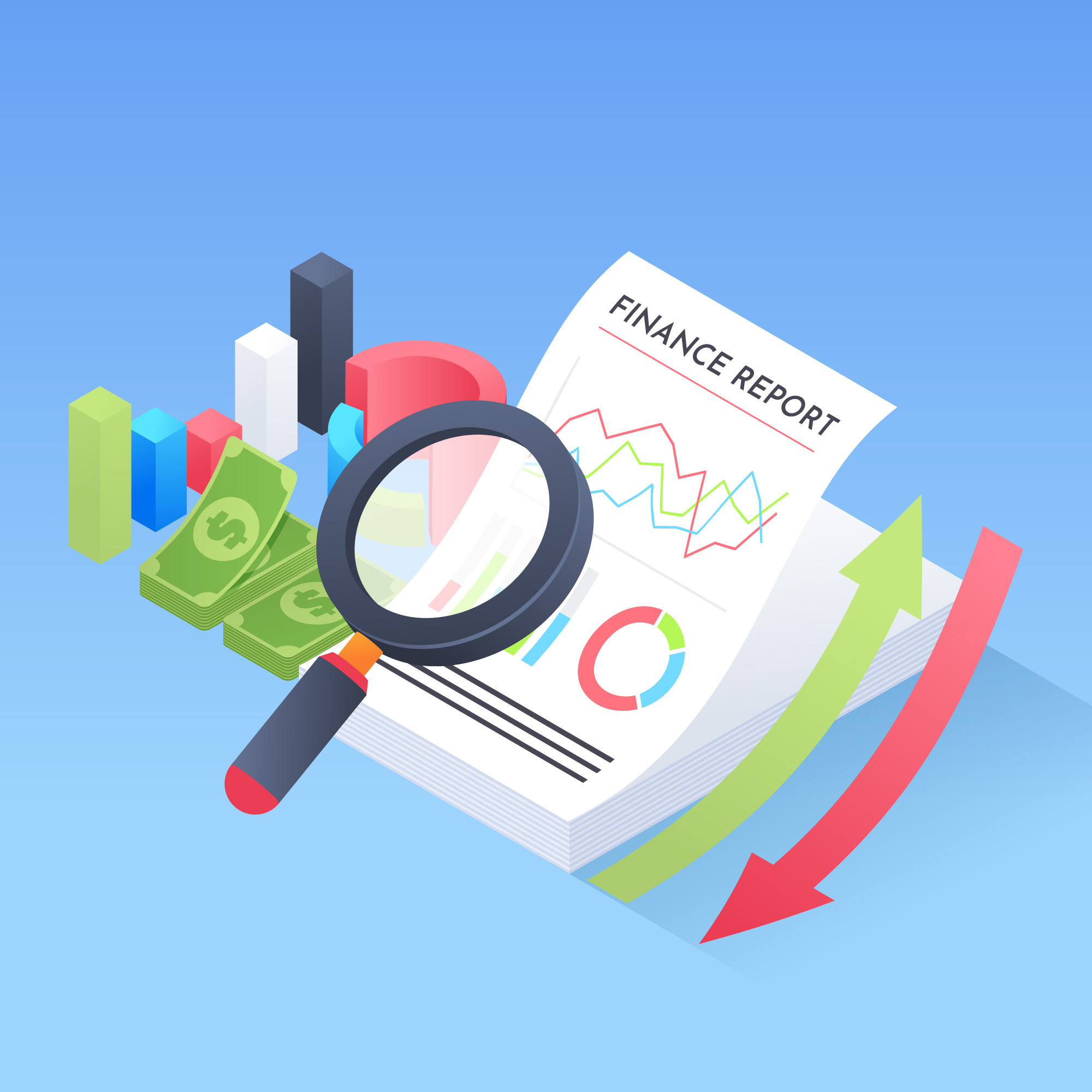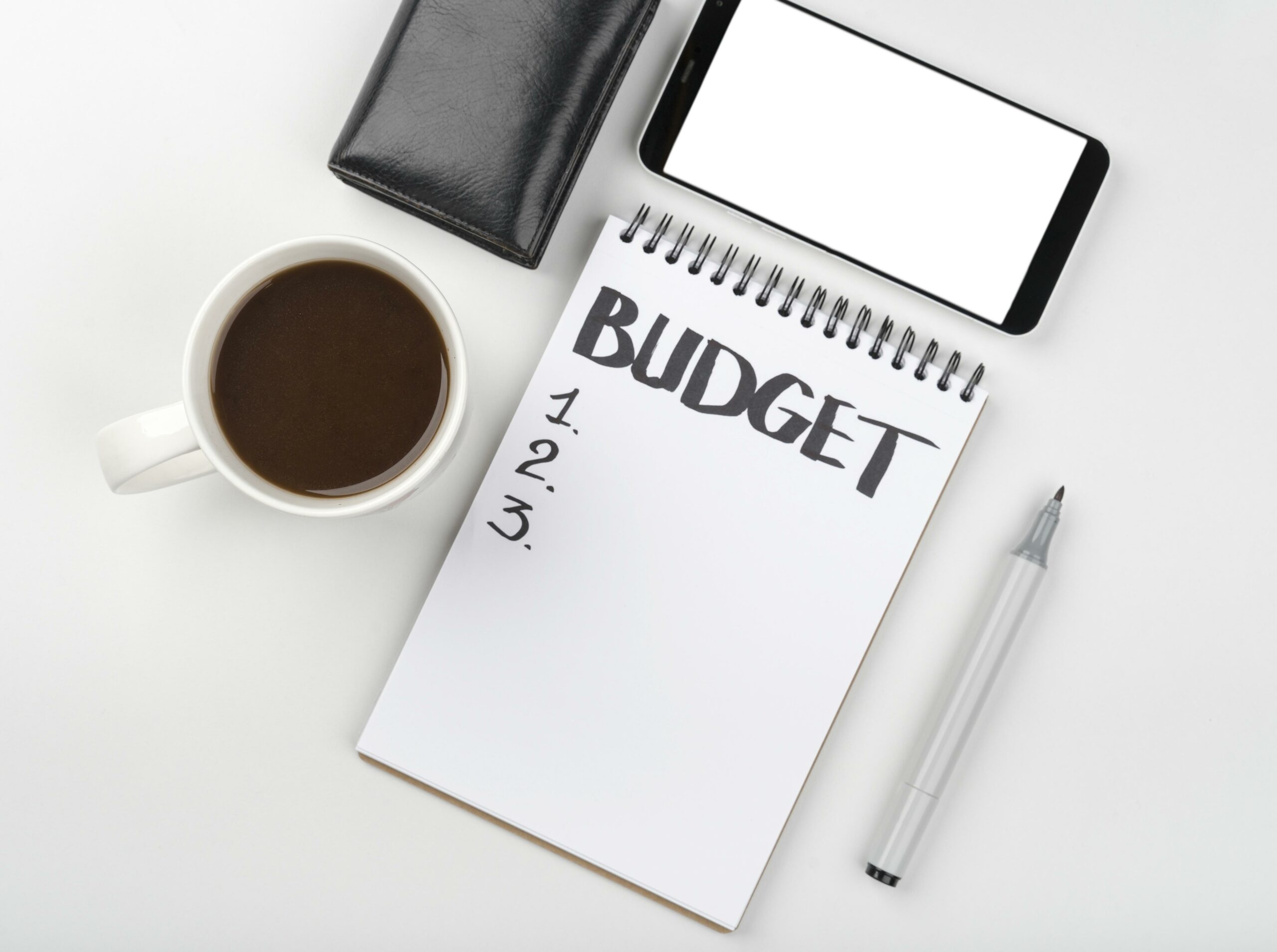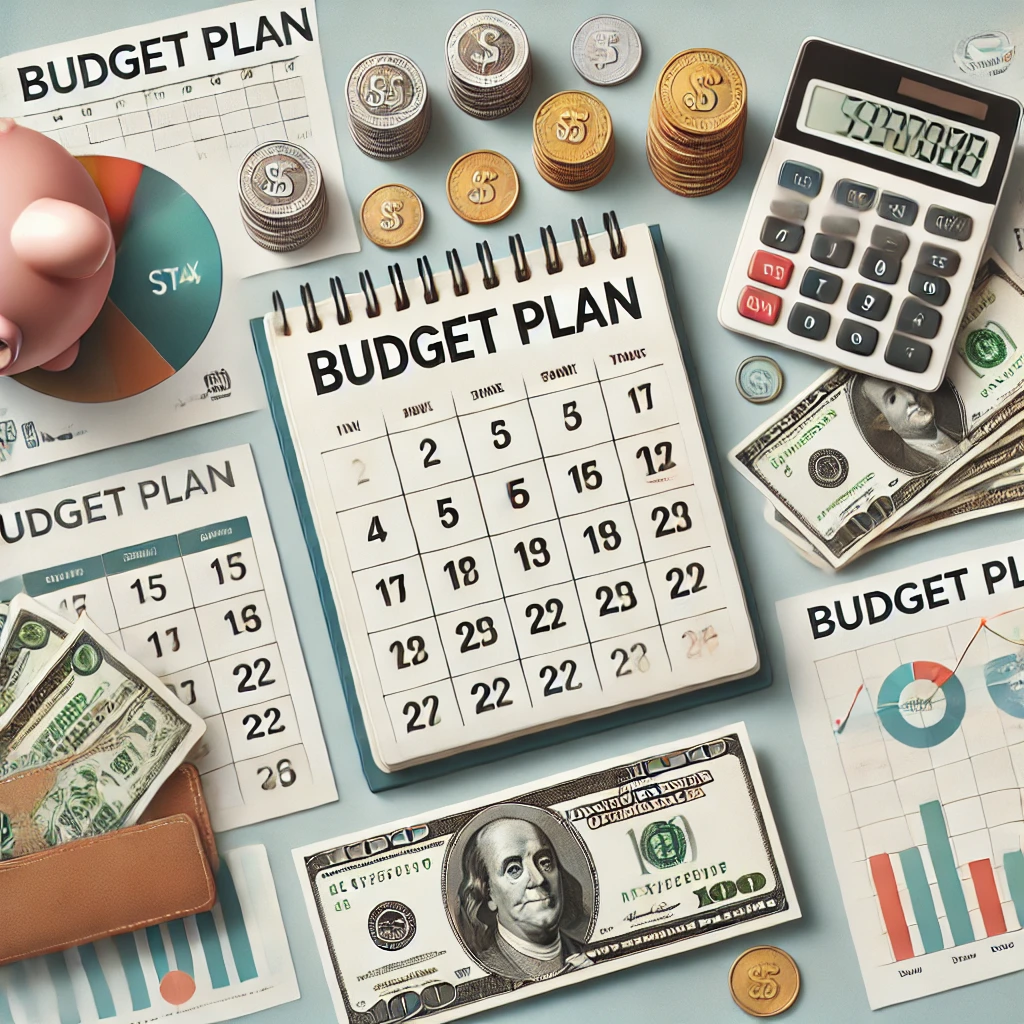Managing your finances is a crucial aspect of responsible living. Whether you’re saving for a dream vacation, planning for retirement, or simply trying to avoid going into debt, budgeting is a fundamental skill. Fortunately, there are numerous tools available to help you track and manage your finances. Budget trackers, in particular, have become increasingly popular in recent years due to their ability to simplify the budgeting process.
However, with the plethora of budget tracker options available today, choosing the right one can be a daunting task. To make an informed decision, you need to consider your unique financial situation, goals, and preferences. This guide will walk you through the key factors to consider when selecting the right budget tracker for your needs.

Define Your Financial Goals
Before you start exploring budget tracker options, it’s crucial to have a clear understanding of your financial goals. Different people have different objectives, and your budget tracker should align with what you want to achieve. Here are a few common financial goals and how they might influence your choice of a budget tracker:
a. Debt Repayment: If you’re primarily focused on paying off existing debts, look for a budget tracker that offers features like debt tracking, debt snowball calculations, and expense reduction tips.
b. Saving for the Future: If your goal is to save for major expenses, like a home, education, or retirement, a budget tracker that offers goal-setting and automatic savings features will be beneficial.
c. Everyday Budgeting: For day-to-day financial management, you may not need advanced features. A simple budget tracker that tracks income and expenses can suffice.
d. Investment and Wealth Building: If you’re interested in growing your investments or managing a diverse portfolio, you’ll want a budget tracker with investment tracking capabilities.
Understanding your financial goals is the first step in narrowing down your budget tracker options. This clarity will help you choose a tool that aligns with your objectives.
Assess Your Budgeting Style
Budgeting isn’t a one-size-fits-all approach. Everyone has their own style and preferences when it comes to managing their finances. Here are some budgeting styles, and the type of budget tracker that suits each:
a. Traditional Budgeting: If you prefer the traditional envelope budgeting method where you allocate physical cash into different categories, you may not need a digital budget tracker at all. But if you still want a digital tool to monitor your spending, a simple spreadsheet or app can work.
b. Zero-Based Budgeting: Zero-based budgeting involves allocating every dollar of your income to specific categories. To follow this method efficiently, you need a budget tracker that allows you to set detailed budgets for each category.
c. 50/30/20 Budgeting: This method recommends allocating 50% of your income to needs, 30% to wants, and 20% to savings. Look for a budget tracker that can help you divide your expenses accordingly.
d. Bill Payment-Based Budgeting: If your budgeting revolves around paying bills, finding a budget tracker with bill reminders and automatic bill payments is crucial.
e. Minimalist Budgeting: If you prefer a minimalist approach to budgeting, you may want a budget tracker that offers only essential features, avoiding the clutter of complex tools.
Knowing your budgeting style helps you identify features that are essential to your budget tracker. Consider how you like to manage your money, and look for a tool that complements your style.

Analyze Your Financial Situation
To choose the right budget tracker, you need to assess your current financial situation, including your income, expenses, debts, and savings. This information will influence your budget tracker choice in the following ways:
a. Income Sources: Consider whether your income comes from a single source or multiple sources. Some budget trackers are better at handling multiple income streams and can provide more accurate income tracking.
b. Expense Categories: The number and complexity of your expense categories should also be taken into account. If you have many different expenses, you’ll want a budget tracker that allows for detailed categorization and customization.
c. Debt Load: If you have significant debts, a budget tracker that can provide debt reduction strategies and help you prioritize your payments is essential.
d. Savings and Investments: If you have savings or investments, look for a budget tracker that integrates with your bank accounts and investment platforms for a comprehensive view of your financial health.
e. Frequency of Financial Transactions: If you make frequent transactions, you may need a budget tracker that can automatically sync with your bank accounts and credit cards to capture every transaction.
Understanding your financial situation will help you choose a budget tracker that can effectively handle the specifics of your income, expenses, and financial responsibilities.
Consider Security and Privacy
Your financial data is sensitive, and you should prioritize security and privacy when choosing a budget tracker. Here are some security aspects to consider:
a. Encryption: Ensure the budget tracker uses strong encryption to protect your data. Look for features like SSL (Secure Sockets Layer) for secure connections and data encryption at rest.
b. Data Storage: Determine where your data is stored. Some budget trackers store data on local devices, while others use cloud storage. Consider the security measures in place for data stored in the cloud.
c. Multi-Factor Authentication: Check if the budget tracker offers multi-factor authentication (MFA) to add an extra layer of security to your account.
d. Privacy Policies: Read the privacy policies of the budget tracker to understand how your data will be used and whether it will be shared with third parties.
e. User Reviews: Research user reviews and ratings to learn about the experiences of other users regarding security and privacy.
It’s crucial to choose a budget tracker that not only helps you manage your finances effectively but also ensures the security and privacy of your financial data.

Budget Tracker Features
The features offered by budget trackers can vary widely. While some individuals prefer simple tools for basic income and expense tracking, others may require more advanced functionalities. Here are some common features to consider when choosing a budget tracker:
a. Income and Expense Tracking: Ensure the budget tracker allows you to input and categorize your income and expenses easily.
b. Customization: Look for a tool that allows you to customize categories, labels, and budget periods to fit your needs.
c. Budget Goals: Check if the budget tracker enables you to set and track budget goals for specific categories.
d. Bill Reminders: If you have recurring bills, find a budget tracker that sends reminders and can even automate bill payments.
e. Debt Tracking: If you’re focused on debt reduction, choose a budget tracker that offers features for managing and paying off debts.
f. Investment Tracking: If you have investments, look for a tool that can connect to your investment accounts and provide a consolidated view of your portfolio.
g. Synchronization with Bank Accounts: Some budget trackers can sync with your bank accounts to automatically capture transactions, which can save you time and effort.
h. Reporting and Analysis: Consider whether the budget tracker provides detailed reports and insights into your financial habits.
i. Mobile Accessibility: Ensure the budget tracker is accessible via mobile apps if you prefer managing your finances on the go.
j. User-Friendly Interface: The ease of use is important, as a complicated interface can be a barrier to effective budgeting.
k. Support and Documentation: Check if the budget tracker offers customer support and detailed documentation for troubleshooting.
Evaluate the features that are most important for your budgeting needs and look for a budget tracker that provides those functionalities.
Cost and Pricing Models
Budget trackers come in a variety of pricing models, and it’s essential to understand the costs associated with each option. Here are some common pricing models:
a. Free: Some budget trackers are entirely free, providing basic budgeting functionalities. These can be a good choice if you’re on a tight budget.
b. Freemium: Many budget trackers offer a free basic version with the option to upgrade to a premium version for more features and functionality.
c. Subscription: Some budget trackers require a monthly or annual subscription fee to access advanced features. Consider the cost and whether the features justify the expense.
d. One-Time Purchase: A few budget trackers are available as a one-time purchase, which means you pay once for full access to the software.
e. In-App Purchases: Some budget trackers offer additional features or customization options through in-app purchases.
When evaluating the cost of a budget tracker, consider your budget and the value you place on the features it offers. Remember that the most expensive option is not necessarily the best for your specific needs.

Compatibility and Integration
The compatibility and integration capabilities of a budget tracker can significantly impact its usefulness in your financial management. Consider the following factors:
a. Device Compatibility: Check if the budget tracker is available on the devices and operating systems you use, such as Windows, Mac, iOS, Android, or web-based platforms.
b. Synchronization with Bank Accounts: Look for a budget tracker that can sync with your bank accounts, credit cards, and financial institutions to capture transactions automatically.
c. Integration with Other Financial Apps: Some budget trackers can integrate with other financial apps, like accounting software or investment platforms, for a more holistic view of your finances.
d. Import and Export Options: Ensure the budget tracker supports importing and exporting data in various formats, making it easier to switch or migrate your financial data.
e. Accessibility on Multiple Devices: If you use multiple devices, consider a budget tracker that syncs data across all your devices, ensuring you have access to your financial information wherever you go.
Compatibility and integration features can streamline your budgeting process and provide a more comprehensive view of your finances.
![]()
User Feedback and Reviews
One of the best ways to gauge the effectiveness and usability of a budget tracker is by reading user reviews and feedback. Look for reviews on app stores, forums, and reputable tech websites. Pay attention to comments regarding ease of use, customer support, and any issues users have encountered. Keep in mind that a few negative reviews are common, but patterns of recurring issues may indicate potential drawbacks.
Try Before You Commit
Before you commit to a budget tracker, it’s advisable to try it out. Most budget trackers offer free trials or have a free version with basic features. Take advantage of these opportunities to get a feel for the tool and see if it aligns with your budgeting style and requirements. This trial period will help you make an informed decision without any financial risk.
Backup and Data Recovery
Accidents can happen, and you might lose important financial data. Ensure your chosen budget tracker has backup and data recovery options to protect your financial records. Regularly backing up your budgeting data is a crucial safety measure in case of device failure or data corruption.
You can also read : Budget Car Rental: Save on Affordable Car Hire
Choosing the right budget tracker is a crucial step in effectively managing your finances. To make an informed decision, consider your financial goals, budgeting style, current financial situation, and desired features. Pay close attention to security and privacy, as well as the cost and pricing models of the budget tracker. Compatibility, integration capabilities, and user feedback are also important factors to evaluate. Finally, don’t hesitate to try out a budget tracker before committing to it. With the right tool in hand, you can take control of your finances and work towards achieving your financial goals.



